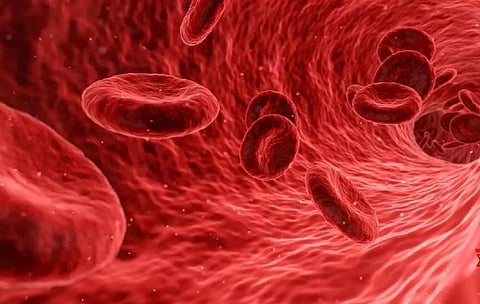

CHENNAI: Thalassemia is a genetic disorder leading to anemia or reduced hemoglobin due to mutations in genes encoding the globin protein. Its management may include regular blood transfusions, iron chelation therapy to prevent iron overload and monitoring for complications such as preeclampsia and gestational diabetes.
“Pregnant women with thalassemia are at an increased risk of complications, including miscarriage, preterm labor, and stillbirth. These risks are particularly high in women with severe thalassemia, who may require regular blood transfusions to manage their condition. Blood transfusions can lead to iron overload, a condition in which the body stores too much iron, which can cause damage to the heart, liver, and other organs,” says Dr. Rajsri J Shankar, Obstetrician & Gynecologist, Apollo Cradle and Children’s Hospital.
In addition to these risks, women with thalassemia may also experience other pregnancy-related complications, such as preeclampsia, gestational diabetes, and fetal growth restriction. These complications can be particularly dangerous for women with thalassemia, as they can exacerbate anemia and lead to further complications.
If a woman with thalassemia is considering pregnancy, she should receive genetic counseling to understand the risks to her offspring and discuss options such as pre-implantation genetic diagnosis or adoption.
Dr Vasundhara Tamhankar, Clinical Geneticist and Paediatrician, MedGenome Labs & CMG says that DNA testing can be used for confirming both alpha and beta thalassemia types. Various types of DNA tests included ARMS PCR for common mutations, Sanger sequencing and next-generation sequencing, MLPA (deletion/duplication assay). More than 100 mutations have been defined in beta-thalassemia.
“Bone marrow transplantation from HLA matched donor can be curative. Gene therapy or Zynteglo has just been approved for beta thalassemia but is expensive and not currently available in India. Prevention of thalassemia major is by prenatal diagnosis around 12 to 16 weeks of pregnancy by chorionic villus sampling or amniocentesis. Invitro fertilization (test tube baby) and preimplantation genetic diagnosis (embryo DNA diagnosis) is also possible as a preventive method,” said Dr. Vasundhara.